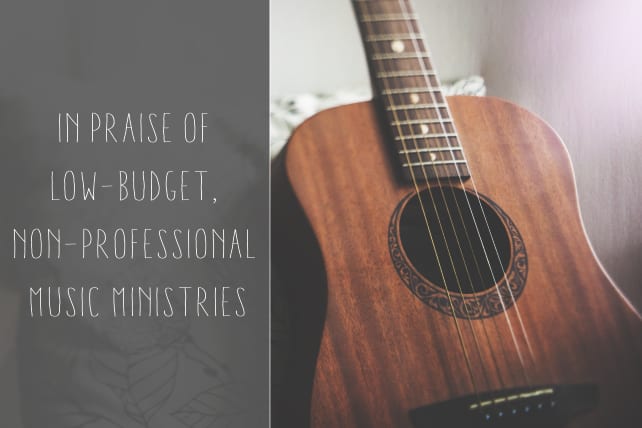Teaching, celebrating, lamenting, sympathizing, encouraging, implanting, sharing, rejoicing, praising, catechizing, amazing, humbling, praying, instructing, defending, explaining, supporting, expressing, demonstrating, dramatizing, reminding, marking, solemnizing, involving, incorporating, witnessing, and memorizing.
These are just some of the things God uses music to do in and through Christians in the life of the local congregation. Too many pastors consider this ministry—and its importance—too little. Not so Martin Luther. The great German preacher once said, “I have no use for cranks who despise music, because it is a gift of God. Music drives away the Devil and makes people gay; they forget thereby all wrath, unchastity, arrogance, and the like. Next after theology, I give to music the highest place and the greatest honor.”
MUSIC IN THE BIBLE
What a wonderful gift God has given to us in music! The Old Testament is full of it, from Levites to King David. And we know that in the New Testament, the singing of a hymn concluded the Last Supper, and that the redeemed will compose a choir which will provide a soundtrack for our transition from time into eternity. Clearly the New Testament instructs us to sing and make music (Eph. 5:19; Col. 3:16; James 5:13). And this is not a tiresome task, but a great blessing. We’re being invited into a this-worldly expression of a next-worldly reality—the song of the Redeemed with the Lord!
Edward Hiscox, a prominent 19th-century Baptist minister in New York once wrote that
Singing should be congregational; that is, the people should sing—all the assembly should praise God in song. Singing is the people’s worship. The chant, the anthem, the oratorio, are rather for the cathedral and the temple. Though beautiful and sublime, they should be incidentally used in the Christian congregation. They inspire worship in the assembly, but the assembly does not to any considerable extent worship in them. The genius of the Gospel and of the Christian sanctuary requires chiefly the chorus, where the congregation shall not listen and have devotion excited, but where they shall sing and express devotion. (Baptist Church Directory, New York, 1859; p. 50)
So why does music sometimes not seem like that for the pastors and leaders of a local church? Could it be that we have more culturally determined forms for obeying those commands than we need to have, more than are really good for us? Could it be that other cultures and earlier times had a simplicity in their obedience to the music-related commands, something which actually increased the congregation’s joy? Should our church services feel like entertainment, a kind of concert?
A SELF-TEST
Let’s take a self-test. Are these words (associating them with your church’s ministry of music) good or bad? Serious. Expressive. Professional. Congregational. Excellent. I know that in my own experience, and for others in our congregation, the music of our congregation has a profound ministry to me. When I both hear the congregation singing and, even more, when I get to sing with them, I often feel like the Grinch on that wonderful Christmas when his heart grew three sizes that day. That’s my response to hearing our congregation sing “Immortal, Invisible God Only Wise” or “Jesus Paid it All.”
I recognize our church’s music ministry may be unusual these days, but it may be instructive to review some of this.
As a congregation, we sing probably around 15 hymns on the average Lord’s day (about 9 in our morning service and 6 in our evening prayer service). We sing all the stanzas, and, if the parts are good, we’ll often sing the last stanza a cappella. Sometimes people visiting wonder how it is that we can have a congregation where the average age of the attender seems to be under 30, and yet sing so many hymns with so little accompaniment (usually a piano and a guitar). What’s more, people seem to like it!












